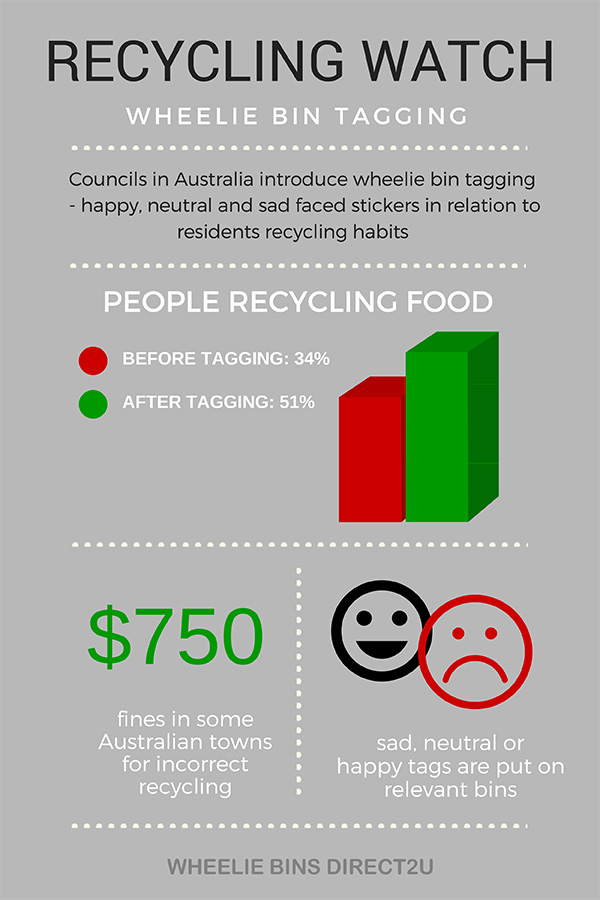Neighbourhood Recycling Watch:
In Adelaide, Australia there are many things to be feared; venomous spiders, dangerous snakes and now… the dreaded sad face sticker.
Councils across Adelaide are despatching inspectors to brand people’s wheelie bins and those who are found with incorrect rubbish in bins will be tarnished with a sad faced sticker.
Recycling Police – Why?
The council believe that by alerting residents to their mistakes it will educate them better. The aim of the scheme is not to embarrass or punish anyone, but to teach residents about which waste is recyclable and which is organic.
The stickers started appearing this week featuring happy, neutral and sad faces in relation to how people score on the waste front.
A spokesperson for the council outlined the process and cleared up any worries that the inspectors will be rifling through personal documents – the inspectors simply inspect the waste by opening the lid to check it’s contents and do not rummage through the rubbish.
The waste-patrol personnel take a quick look inside the bin’s, spot if there’s something that shouldn’t be in there and put a sticker along with an educational flyer to remind people of the correct items to be in that bin. The spokesperson also confirmed that the council would not be introducing fines for people who are using their bins incorrectly.
What next for regulating recycling?
In Eastern Australia, one council enforces a fine of $750 for residents who fail to use their bins for the correct waste to ensure people are more accurate. From the council who impose fines on their residents figures show that only 38% of the town’s household rubbish went to landfill.
Other nearby councils are adopting the sticker tagging program and “door-stepping” schemes where staff will speak to residents at their doorsteps to boost recycling rates. Prospect Council ran a bin audit project from February to April this year which involved inspecting 300 bins, every fortnight for two months. The scheme was also used to measure if potential compost was going to waste.
If a resident was found to not be recycling food in the green bin then they received encouragement via the bin stickers to do so. Before the bin tagging scheme began 34% of people were recycling food, after the initiative they found that the figure had risen to 51%.
Here are the official guidelines for bin tagging via zerowaste.sa.gov
We’d love to hear your thoughts on these new bin testing schemes. Are they too intrusive? Would they work here in the UK? There’s a lot to consider when sending inspectors out to judge people’s waste – would the benefits outweigh the cost and time? Let us know at marketing@direct2u.co.uk

